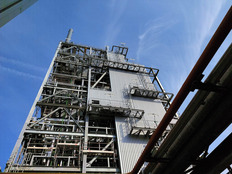
Investment and Expansion
Global demand for methane sulfonic acid (MSA) has been rising steadily, driven by interest in environmentally optimized products. In response, BASF has invested a higher double-digit million euro amount to expand production capacities at its Ludwigshafen Verbund site in Germany. This investment increases the site's capacity to 50,000 metric tons per year.
Properties and Applications
Methane sulfonic acid, marketed under the Lutropur® MSA brand, is a highly active organic acid with unique properties. It is a strong acid that forms highly soluble salts, and is colorless, odorless, and readily biodegradable. These characteristics make MSA suitable for a wide range of applications, including chemical and biofuel synthesis, industrial cleaning, and metal surface treatment in the electronics industry.

